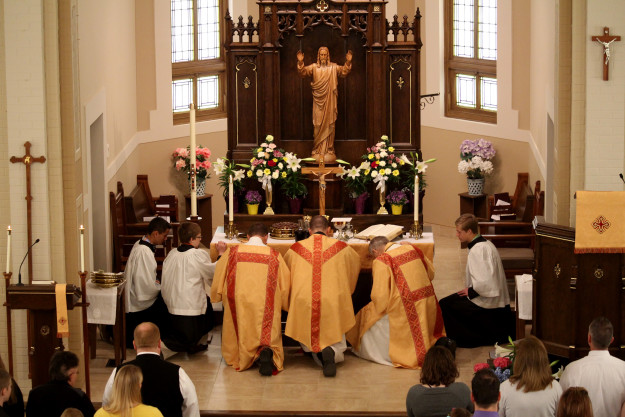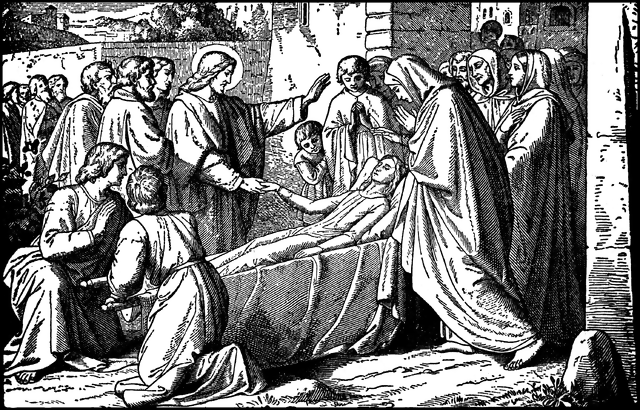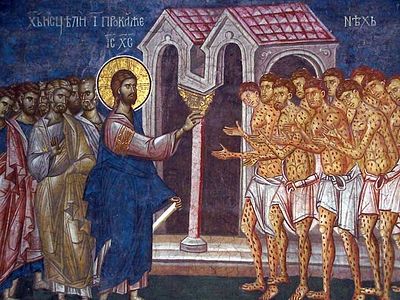This is part of my sermon for Reformation Day. The theme was inspired by a recent Facebook post from Dr. Peter Scaer about the danger in losing our memory.
After 500 or so years, though, it may be tempting for Lutherans today to ask, “Why celebrate the Reformation?” “Why have a festival dedicated to the nailing of Martin Luther’s 95 theses to the Church doors at Wittenberg? Why does it matter?” Would it be so bad if we removed this from our collective memory? Suppose we decided as a Church that we would no longer observe Reformation Day or teach about it to our children. We would have no commemoration of it in worship.
And while we’re at it, why not just erase from the Church’s memory the lives of those saints who have gone before us? Let’s forget that there was a James or a Paul or a Timothy or a John. And let’s forget that there was ever a Church before us. What would be the harm in that? Then we could just focus on the now. We could only talk about what is relevant to us today, at this very moment.
And let’s be honest—this is a malady that is becoming all too common in the Church today. There is a real desire in our day to pretend that what came before us is less important than what is happening now. There is an increasing loss of memory when it comes to the things of the Faith, a spiritual dementia setting in, especially in the American context.
And woe to those who would try to keep the memory alive. Woe to those who would say that our spiritual forebears actually knew something, and maybe they knew it better than us and treasured it more than us. That maybe we would do well to look backwards before looking forwards and learn at the feet of a Luther or an Augustine or a Cyprian or any of the saints who have gone before us, despite their flaws and warts.
But that would require a bit of humility, wouldn’t it? That would require us to admit that we are the children, and they are the fathers. It would require us to dust off our Bibles and Catechisms and Books of Concord and start reading and learning about what others have taught and done; to admit that the story of Christianity did not begin with us or even with Luther. Are we willing to do that?
No doubt most of you have known someone who has lost his memory. He can’t remember where he came from or who he is. Those who know they are losing their memories have it worse, in a way, because they can see the dementia setting in. They know what is coming. And they mourn that loss of memory; memories of childhood, of times past. They feel lost. Indeed, they are lost. They have “no anchor, no tethering, no compass or bearings,” as one Lutheran professor recently observed.
And without a knowledge of the past, without a memory of what has been, there is no way of knowing what will be. There is no way to know where we are going. So birthdays and anniversaries, while they are often taken for granted, are important events. They are historical markers. They tell us who we are, and where we come from. They give us the “why” of our existence.
It is no different with the Church. When the church loses her memory, she too becomes lost. She forgets who she is and where she came from. As a Church, to lose our memory is to lose our identity. Which is one of the reasons we continue to celebrate festivals like the Reformation. It is one of the reasons that we remember what happened 500 years ago, how God used a lowly German monk and priest to bring to light once again what had been forgotten and hidden in darkness for so long.
We celebrate it so that we can give an answer to the question: Who are we? Who are we as baptized Christians and members of the Church universal? More specifically, who are we as Lutherans and members of the Evangelical Lutheran Church?
First and foremost, we are precious sheep who hear with faith the voice of our Good Shepherd. Sheep for whom Christ, the Lamb of God, shed His blood and died so that we might live. We are beggars and sinners who have been declared righteous before God, who live only by the gracious food of God’s holy Word. And yet we live on more than just crumbs. “My cup runneth over,” we say in Psalms.
God is superabundantly rich in his grace. He gives us more than one way to receive the Gospel gifts of forgiveness, life, and salvation. As Lutherans we rejoice that God delivers the Gospel to us through the spoken Word, through baptism, through the Sacrament of the Altar, through the Power of the keys, and through the “mutual conversation and consolation of the brethren.”
We rejoice that the Law and the Gospel are properly distinguished among us, so that hardened sinners may hear that they are under God’s wrath and should repent; and those who are penitent and desire God’s grace may hear that their sins are taken away. As we celebrate Reformation Day, we also rejoice that we are part of a story that did not begin with our generation or the previous generation.
It is a story that goes back hundreds of years, to a little town called Bethlehem, where a holy child was born to a virgin named Mary. He is really the main character in this story; the hero who saved the human race by his own suffering and death. It all centers in Him. If we want to know the end of this story, the end of our story, we need only look at Him, how He was raised in glory and seated at the right hand of God. Our identity is wrapped up in His.
The Reformation helped the Church regain her memory, and with that, her identity. It helped her focus once again on the main character in the story and His saving work for us sinners. And we are the heirs of that Reformation if we continue to believe with our hearts and confess with our mouths that “all have sinned and fall short of the glory of God, and are justified by his grace as a gift, through the redemption that is in Christ Jesus, whom God put forward as a propitiation by his blood, to be received by faith.” God grant it, for Jesus’ sake. Amen.



 Something I wrote for our local paper this week:
Something I wrote for our local paper this week:




You must be logged in to post a comment.